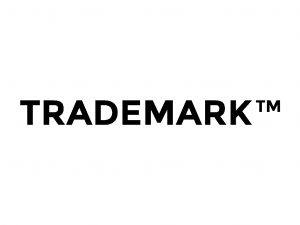Differences Between Passing Off and Trademark: Passing off and trademark infringement are categories under economic tort. Economic tort is an area of torts law with the aim of protecting trades and economic interests of people from unlawful interference. The law recognizes that in furtherance of trades and profession, there should be a line where competition should be drawn across in order to protect the identity, status and interest of another.
In most economic torts, damages need not specifically be proved. Once it is established that economic tort has been committed, damages flows naturally. But the main remedy sought and ordered by the court upon the establishment of economic tort is usually injunction and declaration.
Recommended: Exceptions to the rule in Rylands v Fletcher
Meaning of Passing Off
Passing off is an economic tort whereby one misrepresents the origin of a product in a deceitful manner. The tort of passing off is committed where the acts of the defendant misleads or is such that is capable of misleading the general public into believing that his product is that of another (the plaintiff).

The tort of passing off seeks to regulate the extent of competition in business, particularly where the rival business against which the tort is committed has attained a reputable status and it would be unfair to allow the defendant enjoy the benefit of another to foster his own business by representing same to be that of another.
The tort of passing off may be committed intentionally or negligently, but this is immaterial to the question of liability. Tort of passing of may be committed by the defendant for the purpose of fostering his own business or may be committed for the purpose of downgrading the status of the rivalry trader’s product (for instance, where the defendant maliciously produces less quality products and represent them as that of the plaintiff).
Also see: Meaning and Types of Constitution

Elements Of The Tort OF Passing Off
a. Misrepresentation: The hallmark of the tort of passing off is the misrepresentation by the defendant.
The tort of passing off may be committed by misrepresentation in the following ways:
b. Using the Plaintiff’s Trade Name: it is an actionable passing off to use the plaintiff’s trade name in a manner that is capable of deceiving the public into believing that the plaintiff is the owner, or in a manner that is capable of creating confusion in the minds of the public as to which is which.
Even when the name used by the defendant is not exactly the same as that of the plaintiff, the tort of passing off is still constituted where the names has striking resemblance capable of misleading the public. In the case of Hendriks V Montagu, injunction was granted against Universe Life Assurance Association as the name has striking resemblance with Universal Life Assurance Society and is capable of misleading the public.
Also see: Advantages and Disadvantages of a Written Constitution
c. Marketing one’s product as that of the plaintiff: the act of marketing one’s own business in representation that it is the product of another when in fact it is not actionable as passing off.
d. Using the Plaintiff’s Trademark or a Resembling Trademark: Trademark is a distinctive word, symbol or phrase used to identify a particular company’s or business product as unique and differentiated from that other company or product. Passing off can be committed by using another company’s or business trademark or such mark that creates a resemblance of it. Trademark is protected both under the tort of passing off and under Trade Marks Act (when registered).
Recommended: Advantages and Disadvantages of being a Leader
e. Imitating the Get-up or Appearance of the Plaintiff’s Goods: imitating and packaging the looks or appearance or one’s goods as that of another may constitute the tort of passing off as long as it is such that is likely to mislead or induce confusion in the minds of the public as to whose product it is.
To be liable, the appearance so imitated must not be a functional one. For instance, packaging the container of shaving stick in the like of that of the plaintiff. Such will not constitute passing off as laid down in Williams Co. V Bronnley & Co.
Recommended: Countries with the best education system in the world
f. The misrepresentation must have been made in the course of the business or trade
g. The defendant’s conduct must have been calculated to deceive the public. The plaintiff need not establish that the defendant’s act did in fact mislead the public. It is enough if the act complained of is such that is likely to mislead the public.
Where the plaintiff consents to the representation of the defendant’s trade as his (the plaintiff’s), this constitutes a defence for he cannot be heard claiming passing off.
Recommended: Best Countries to Study and work as a lawyer
Meaning of Trademark
A trademark is a pictorial intellectual identity capable of being owned exclusively. It is made up of phrases, designs, signs and symbols which is unique and attributable to a particular product, business, trade or profession in exclusion of all others. Trademark in Nigeria is governed by the Trade Marks Act.

When one’s trademark is duly registered pursuant to the Act, he enjoys exclusive usage of the trademark and has every right of action against any third party infringement. Where trademark is not registered however, it does not preclude an aggrieved party from maintaining an action for infringement of trademark since trademark infringement is as well protected under the economic tort of passing off.
Recommended: How to deal criticism positively
However, the proof of trademark ownership under the tort of passing off poses more difficulty for the plaintiff would be required to establish its premiere invention and usage. It is therefore safer and most advisable to have one’s trademark duly registered under the Act for it lessens the burden of proof on the plaintiff and renders the defendant liable forthwith.
Trademark is an intellectual property. Being an intellectual property, the owner can exercise the entire rights incidental to ownership in its respect such as the right to alienate, destroy and so on. The protection of trademark by the law has been for ages, for the law recognizes that in furtherance of business and profession, marks could be designed and owned in representation of the business or trade in its entirety, and such property rights ought to be protected in order to foster sanity in trades and professions.

Recommended: How to come up with a good book title
Differences Between Passing Off and Trademark
From the analysis given, it is seen that passing off and trademark are similar in purpose and application. Yet, their differences are clear and highlighted below:
1. Action for trademark can be maintained in respect of trademarks that are duly registered under the Trade Marks Act. Here, it is less onerous to prove that such trademark is owned by the plaintiff. On the other hand, action for passing off lies in respect of trademark infringement where the trademark so infringed is not registered. The aggrieved party can therefore institute an action for passing off and would be required to establish his premiere interest of the trademark and also that the trademark has become so notorious and attributable to his product, trade, enterprise or profession. In such a case, the tort of passing off must be specifically proved.
Also see: How to Draft an Affidavit perfectly Well
2. Action for the infringement of trademark is statutorily prescribed. On the other hand, action for passing off is not necessarily statutorily prescribed, although it has been codified in some jurisdictions. It is rather an action claimed where there is unlawful economic interference with the trade of the plaintiff. Passing off being a category under economic tort is traceable to the common law.
3. Clearly, the Federal High Court has the jurisdiction to entertain issues arising from the Trade marks Act. For passing off, although there are conflicting decisions in some peculiar cases where the passing off complained of is the infringement of unregistered trademark, but generally, the High Courts have the jurisdiction to entertain actions for passing off.
4. Strictly, action for infringement of trademark lies only when the plaintiff’s trademark has been infringed by express imitation or resemblance. On the other hand, the scope of passing of is wider. Passing off covers all acts (including trademark infringement) that actually or are likely to represent the plaintiff’s trade or product as that of the defendant.
Also see: How to Become a Successful Lawyer in your country
5. It is easier to prove trademark infringement when the trademark is duly registered pursuant to the Act. On the other hand, the proof of passing off is more onerous, for the acts constituting passing off must be specifically proved.
6. For trademark, all that is needed to be proved is that the trademark owned by the plaintiff is being infringed by the Defendant and that the trademark in question has been registered by the plaintiff. For passing off, the plaintiff needs to prove misrepresentation, goodwill and damage.
7. Trademark is squarely in respect to marks being used and not the goods itself. On the other hand, passing off may relate to the get-up of the goods, the marks and the use of name. This means that passing off is broader.
Recommended: How to Write Law Articles Excellently Well
Conclusion
Notwithstanding that trademark overlaps into passing off, the distinction between the two terms is a clear one. Trademark specifically is concerned with registered trademarks. The scope therefore is narrow, whereas passing off relates to all acts (including unregistered trademarks) which unlawfully presents one’s business as that of another by any means. It is from this primary distinction that other distinctions are rooted.

Edeh Samuel Chukwuemeka, ACMC, is a lawyer and a certified mediator/conciliator in Nigeria. He is also a developer with knowledge in various programming languages. Samuel is determined to leverage his skills in technology, SEO, and legal practice to revolutionize the legal profession worldwide by creating web and mobile applications that simplify legal research. Sam is also passionate about educating and providing valuable information to people.